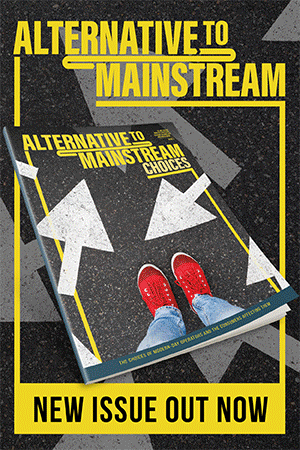Why the food industry must re-engage with British farmers

The City Food Lecture 2022, which took place at London Guildhall on 17 February, marked a rallying cry for the industry and country to re-engage with British farmers.
The first City Food Lecture in a post-Covid world saw its keynote speaker, the managing director of Arla Foods UK Ash Amirahmadi (pictured above), urging more than 600 leaders of the UK food and agricultural industry to embrace change as their sector enters a defining decade, and that farmers are at the frontline when it comes to sustainability.
Amirahmadi argued that the negative terms often associated with farming are a distraction, and that there is a compelling argument for the whole supply chain to reconnect with farmers who will become increasingly important in the fight to feed people while protecting the planet.
Claiming that “farmers are the people who can make the biggest impact on our journey to sustainable food production”, he talked about his confidence in the net-zero journey Arla farmers are on and said that everyone in his audience – whether a food company, an industry supplier, an MP or a member of the public – should all be asking how they can help farmers accelerate the journey towards sustainable food production.
Sharing insight into Arla’s own sustainability journey, which has made its farmer owners among the most emission efficient in the world, Amirahmadi challenged every business in the sector to look first at what’s working well in their business, before identifying the best areas for change.
Stopping mid-speech to ask the audience to join him in a round of applause for all those who kept food flowing during the coronavirus pandemic, his timely reminder of the vital importance of the sector put into context the operational business challenges that sit alongside the bigger questions farmers and food companies are grappling with.
These range from climate change, growing populations worldwide – to the opportunities and challenges of technological advances and changing consumer demands.
"We've got this, but here's how you can help"
In speaking at the 21st anniversary of the event Amirahmadi stated: “Just as the City Food Lecture is coming of age, so too is our industry.”
He said that it is time for the agricultural sector to tell Britain, “We’ve got this, but here’s how you can help...”
This includes:
- Government: Deliver legislation that is consistent and joined up, addressing tomorrow’s challenges with a real sense of vision for British food that avoids a patchwork of sometimes contradictory measures that fail to recognise how intertwined our food systems are;
- The financial sector: Back farmers and recognise that on-farm is where the biggest game-changing moves can be made, and that investments, research and innovation need coordination in order to scale up change across Britain's smaller farms;
- The food and retail industries: Reconnect, talk to and listen more to farmers – everyone in the industry should be seeking to understand how they can support change on farm by listening to those driving those changes;
- The public: Recognise that balance in our farming systems is more complex than the removal of production of certain food types. If farmers are to go beyond making food to also increase biodiversity and support ways in which farming can reduce carbon, food prices will have to reflect this increased activity.
The panel discussion that followed Amirahmadi’s lecture featured Richard Clothier, managing director of Wyke Farms; James Lloyd-Jones, founder and CEO, Jones Food Company; and Fraser McKevitt, head of retail and consumer insight at Kantar.
It was chaired by Charlotte Smith, presenter on BBC1’s Countryfile and on Radio 4’s Farming Today.
Their comments ranged across key societal issues including the growing global population, increased demand for plant based protein and other nutrients, lab grown food, the impacts and the high levels of food wastage in the supply chain.
Importantly, the panel agreed that nutrition must be considered alongside carbon emissions if we are to reach a truly sustainable food system.
To help contribute to the future talent pool, an important part of The City Food Lecture is its Future Generation Forum student programme, where 150 university students from leading food and agricultural colleges and universities heard from both the keynote speaker and panel members on how they can play a vital role in these big industry developments, whatever career path they take in the food, drink and agricultural sectors.







